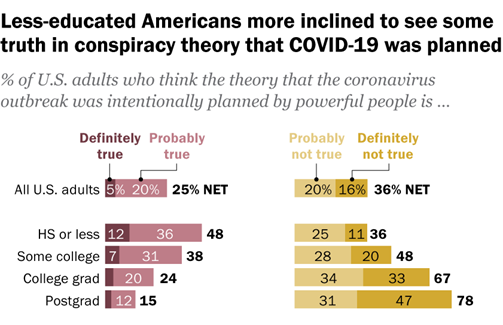Schoolhouse Rock educated a generation of Americans through short films on topics from grammar to science and math. Most notably, the ‘America’ series offered education (and entertainment) on a broad range of civics topics including the three branches of government, how a bill becomes a law, the electoral college and more. Recent statistics suggest the country could use a reboot of the popular cartoon.
“Understanding the basic processes and functions of government encourages more involvement in democratic processes. Unfortunately, this understanding of government, or civic literacy, has also declined over the last two to three decades.” (Hylton) Specifically, only 51% of Americans were able to name all three branches of government (Annenberg Public Policy Center), 52% of Americans can’t name a Supreme Court Justice (C-SPAN / PSB 2018 Supreme Court Survey), and a Woodrow Wilson Foundation study found that the majority of Americans would fail a U.S. citizenship test. This decline in civic literacy is due in part to a recent emphasis on core subjects and state standards, which has left teachers with little instructional time to spend on social sciences. In addition to a lack of civic literacy, there’s been a well-documented decline in civic participation, most notably detailed in Robert Putnam’s “Bowling Alone.”
An uneducated and disengaged populace creates fertile ground for misinformation to take root. Paul Carrese, a political scientist and the director of the School of Civic and Economic Thought and Leadership at Arizona State University, explains in a recent Atlantic article, “historical and civic ignorance contributes to the polarization that is generated on social media. It’s easier for the technology to have such a powerful effect if you start with no foundation.”
The advent of social media in combination with the decline of local journalism has most certainly made it easier for disinformation to spread. Alarmingly, “52% of Americans say they regularly encounter fake news online” and “when it aligns with their beliefs, 56% of Facebook users can’t recognize fake news, social media statistics show.” (Statista)
 This combination of civic illiteracy alongside the proliferation of unvetted ‘news sources’ helps to explain why we’ve seen an increase in the number of individuals believing conspiracy theories about the election and the Coronavirus. “According to according to a Monmouth University poll, “roughly one-third of Americans believe that President Biden’s 2020 electoral victory was the result of widespread voter fraud…and 14 percent of those surveyed say that they will never accept Biden as the legitimate president.” Similarly, a quarter of Americans say the conspiracy theory that COVID-19 was planned is ‘probably true.’ (Pew Research)
This combination of civic illiteracy alongside the proliferation of unvetted ‘news sources’ helps to explain why we’ve seen an increase in the number of individuals believing conspiracy theories about the election and the Coronavirus. “According to according to a Monmouth University poll, “roughly one-third of Americans believe that President Biden’s 2020 electoral victory was the result of widespread voter fraud…and 14 percent of those surveyed say that they will never accept Biden as the legitimate president.” Similarly, a quarter of Americans say the conspiracy theory that COVID-19 was planned is ‘probably true.’ (Pew Research)
The end result is a populace that hasn’t received an adequate civics education, making decisions about their health, elected officials and future while also being bombarded with factually dubious news sources.
So where do we go from here? Thankfully, several organizations have developed innovative civics education programs to prepare the next generation of citizens to be well equipped to participate in civic life and to better protect themselves from misinformation. Additionally, civics education is enjoying increasingly rare bipartisan support. You can find a non-exhaustive list of civics education resources here.



